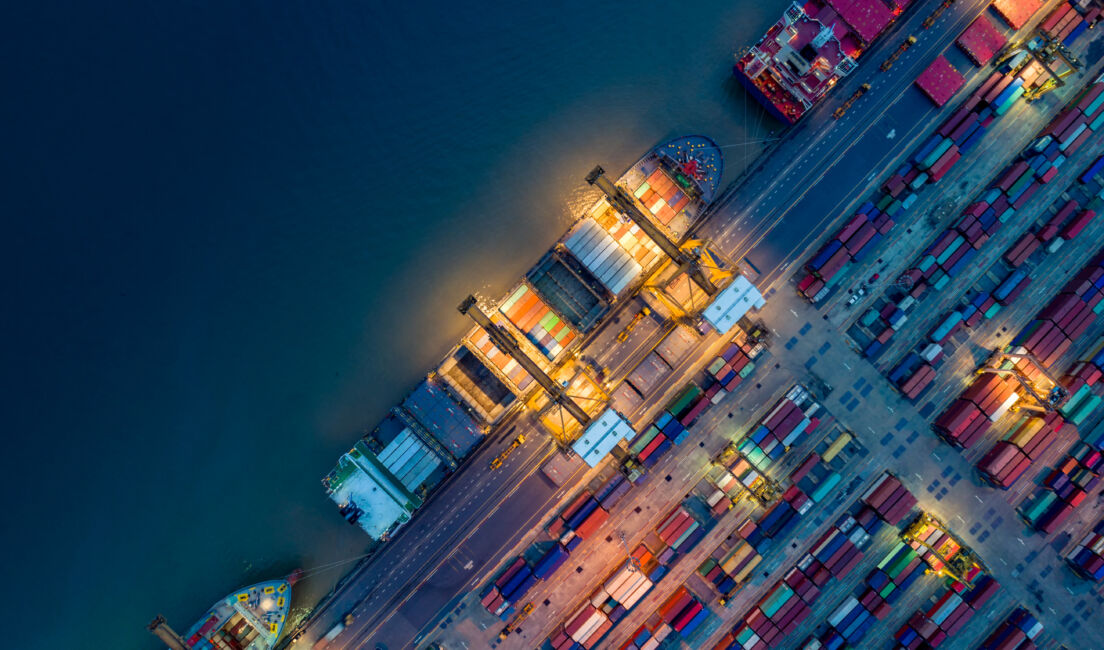Supply chains, economic crises, and 5 links worth your time
Panic in the ports?

How often did you think about the “global supply chain” before this summer? Now, not only is the “global supply chain” on everyone’s minds, but it’s also cause for some to panic. Some recent headlines:
“How the global supply chain might ruin Christmas (and how to adjust)”
“Global supply-chain problems escalate, threatening economic recovery”
“’A perfect storm’: supply chain crisis could blow world economy off course”
The nature of the crisis
There is plenty of anecdotal evidence that all is not well in “supply chain logistics” (another term I previously had little cause to consider). My financial advisor told me he waited almost six months for a new car and, when it arrived, the dealer tried to convince him to sell it back to him as a used car. The day it arrived, he got four offers on it from people who were checking the dealer’s inventory online. My daughter has been trying to buy a graphics card for over a year for the computer she’s building. And Starbucks has been out of hazelnut syrup for months.
Is that a crisis? Maybe inconvenient or frustrating, but if not being able to add flavor to a $4 cup of coffee constitutes a crisis, we’ve got bigger problems than global supply chain disruption.
The world economy being “blown off course,” though? That sounds way more serious than unflavored lattes.
We like stuff, especially when we’re stuck at home
It won’t surprise anyone to know that the pandemic affected the global supply chain.
When people are sick or self-isolating, they likely aren’t producing goods for other people to buy. In the U.S. and other developed countries, however, many people are still buying. In fact, some are buying more than usual because they’ve got stimulus payments and money they would otherwise have spent on vacations or other plans disrupted by the pandemic.
Supply chains are fragile and, often, intentionally so. Manufacturers don’t produce “extra”: they produce what they believe they can sell. It’s usually good news for manufacturers if people want to buy more, but if employees can’t come to work, it’s not such great news.
And that’s just the tip of the iceberg in understanding global supply chains. Zoning restrictions at ports in Long Beach, Calif. make it impossible for “around-the-clock” operation because empty containers can’t be stacked more than two high. In Miami, on the other hand, ports that made improvements in the past find themselves with more capacity now, and officials there are looking for more business.
Most of us are playing catch-up
You should read more for yourself, though. I’ve included these and other articles I read as our five links this week, and we’ll post others on our social media channels throughout the week.
It’s easy to try to play armchair expert when things we don’t understand well dominate headlines. But even those whose job it is report the news find themselves playing catch-up. Peter Goodman, global economics correspondent for The New York Times recently confessed in a sub-headline, “We didn’t even have a logistics beat before the pandemic. Now we do.”
If people who get paid to understand the economy are still learning, I’m not embarrassed to admit that I need to spend more time listening and learning, too!
5 links worth your time
- A perfect storm for our global supply chains.
- Easing strict zoning regulations could help solve supply chain crisis.
- Here are the businesses turning to AI to alleviate supply chain issues.
- Demands for these two things have made supply chains fragile.
- Miami vs. Long Beach, Calif. Which is winning the supply chain competition?
Photo by Travel mania on Adobe Stock